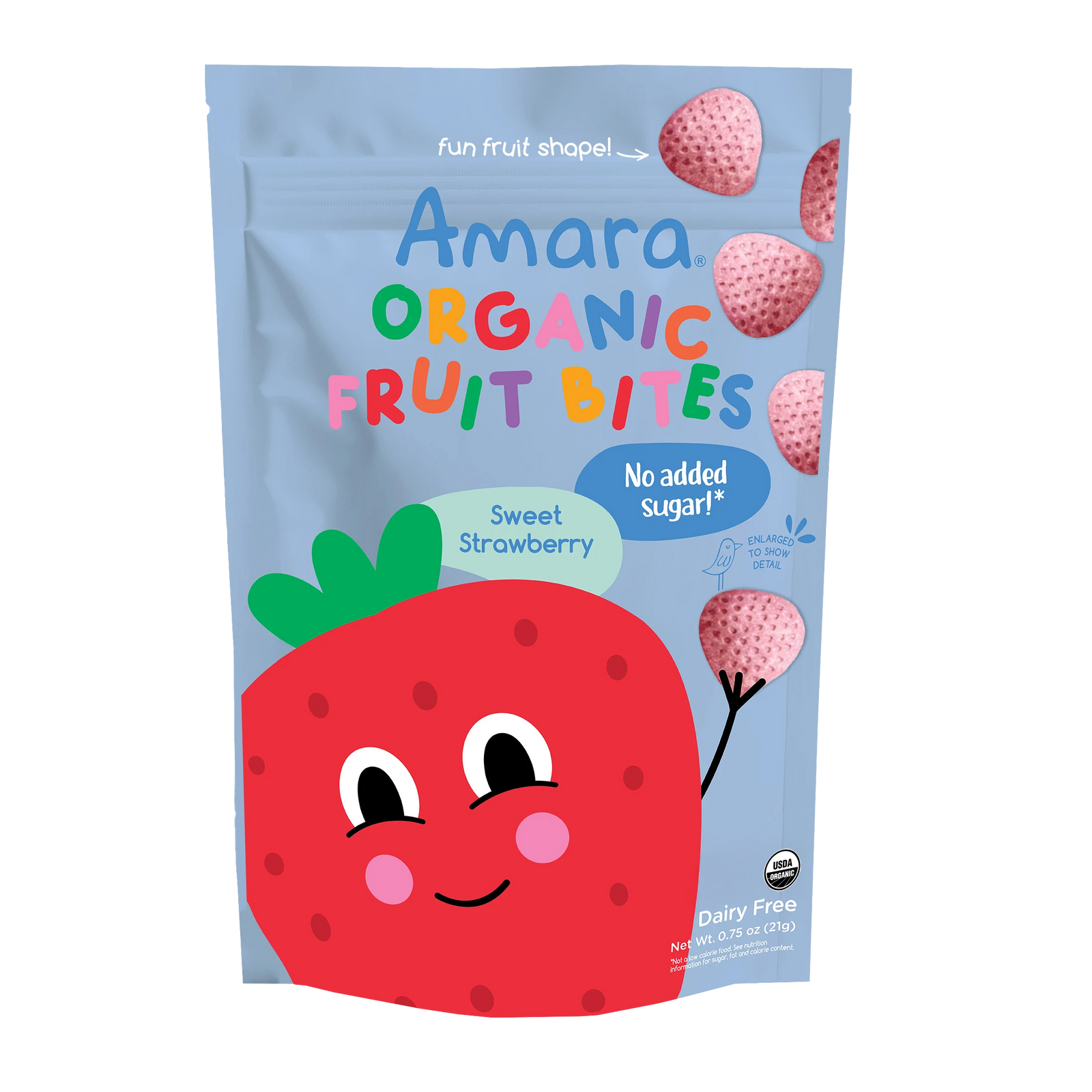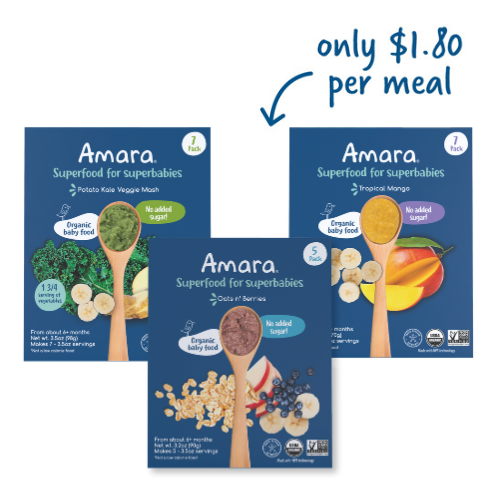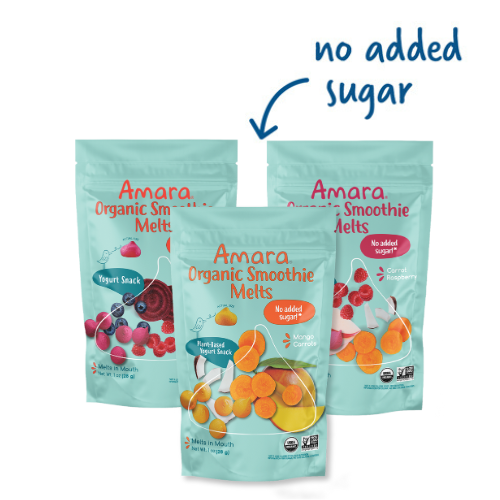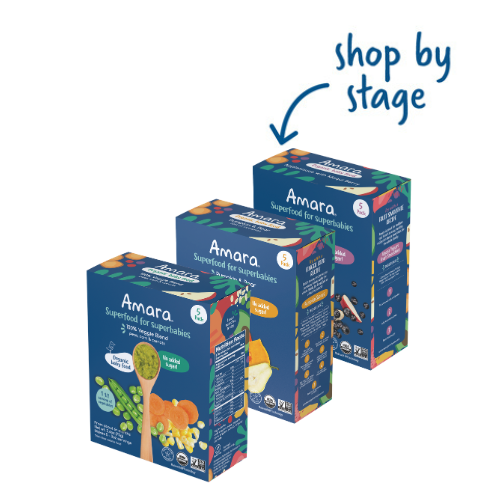
The first thing to know about food refusal among babies and toddlers is that it is VERY common. According to a very serious, highly professional survey I personally conducted with every parent I know, food refusal occurs among 100% of young children.
If you haven’t seen it yet, you surely will…
And it might look different on different days: sometimes, young children refuse a specific food or kind of food; sometimes they refuse to eat anything at a specific meal; other times, they might refuse foods for a string of meals or a span of time. Any and all of these various ways that food refusal can manifest are incredibly frustrating. Keep reading for all you need to know about why babies and toddlers refuse foods, what NOT to do, and what TO do to move forward.
Why Food Refusal Happens
There are SO many, many reasons why young children refuse to eat, and you may be dealing with one or more of them. Here are some of the most common reasons why babies and toddlers refuse foods:
- There’s something they don’t like about the food itself. Often, this is something sensory — babies may dislike the taste, color, texture, feel, or smell of whatever you’ve served them.
- They are uncomfortable. Babies and toddlers may not eat if they are physically uncomfortable (i.e., they aren’t comfy in their high chair, they feel too hot or too cold, their bib is bugging them…) or if they aren’t feeling well (i.e., they’re constipated, teething, experiencing reflux, or sick).
- They’re bored. Young children can grow tired of the same flavors and textures, so they may just be looking for a change.
Anytime babies refuse foods — whether it’s one food in particular or an entire meal, it can be *incredibly frustrating… and this is all the more true when you’ve spent a lot of time preparing a dish. With Amara baby food, prepping foods as familiar as banana and as exotic as kale and potato mash takes mere seconds: just stir a pack of powder together with formula, breastmilk, or water and you’re set. For me, that simple, no-fuss prep makes it much easier to stay calm and relaxed when my children turn something away.

I hope you noticed that nowhere on this list of reasons why babies and toddlers refuse foods is “they don’t like it.” Refusing to eat a food does NOT mean a young child doesn’t or won’t like that food — and indeed, many of us have experienced our children rejecting foods we know they like. This happens all the time to me: yesterday, my daughter loved oatmeal. Today, she won’t touch it. It doesn’t mean she doesn’t like it anymore; it just means she’s not eating it right now.
Food Refusal: What Not To Do
Because we want to finish with the best practices, let’s review things to avoid when your child refuses food first:
- DON’T stop serving that food — the science of repeated exposure demonstrates that the more we offer any given food to our children, the more likely they are to grow to enjoy it.
- DON’T force your child to eat anything. Dieticians explain that force feeding children establishes negative connections with foods and mealtimes, and this is definitely something we want to avoid.
- DON’T pressure or push them to eat anything — it’s important to establish early on that young children are in control of what they choose to eat (or leave…).
- DON’T bribe your child to eat. We’ve all done it (guilty🤦🏻♀️), but this is just another form of pressuring our children at the table.
- DON’T shame your child into eating something — again, this places pressure on children and could risk introducing negative associations with eating.
- DON’T stress out. It’s hard, but the less you can react — ideally, not at all — the better.
Food Refusal: What to Do
Okay, finally — for the fun part (HAH)! Here’s what you CAN do in the face of food refusal:
- Keep calm and carry on — stay relaxed and positive and calm to help maintain a positive attitude and atmosphere. Your child will pick up on that energy and is more likely to move forward with a healthy, happy association with meals and eating.
- Keep serving what your child refuses — don’t lose heart! It can take A LOT of exposures before a child becomes familiar enough with a food to taste it (or even touch/feel it), much less eat it.
- Let your child decide how much to eat of whatever you serve — this is part of what nutritionists call the “Division of Responsibility”: as parents, we choose what to serve our kids, and they choose whether and how much of it to eat. (Remember: no pressure!)
- Try changing up the context — consider making adjustments that mix up something about feeding. Some examples in this category include: where or how your child is sitting; what time you feed them; how soon you feed them after nursing/bottle-feeding; spoon-feeding vs. self-feeding.)
- Try changing up the food — similar to the feeding environment^, even minor changes in how you prepare or present a food can yield success. Think about cooking, cutting, or serving a food your child is refusing differently next time.
- Invite your child to help — Children are much more likely to take interest and eat something that they’ve helped to prepare, so get your littles in the kitchen to pitch in however they’re able. Even observing can go a long way.
The three main keys with all these principles^ is to STAY CALM (don’t react); KEEP SERVING FOODS (repeated exposure); and MIX IT UP (go for variety).
Amara organic baby food makes it easier to respond positively to food refusal:
✔️ With Amara, you don’t have to spend hours making homemade baby food to get the same fresh, high-quality dishes, so you can breathe easy when things don’t go as planned.
✔️ You can prep only what you need — so you can keep offering foods your baby refuses without having to put any to waste.
✔️ You can mix things up easily — not only does Amara offer a greater variety of flavors and food pairings compared to traditional baby food, but you actually have the ability to tailor the taste and texture to your preference. You can choose to add formula, breastmilk, or water; and by adjusting how much liquid you add, you can make every puree as thin or chunky as you desire.
✔️ Every box comes with an easy, toddler-friendly finger food recipe on the side, which is yet another way to incorporate variety and also a strategy to get your children involved in meal prep.
Shop Amara today!

Article researched by:
Amara's Chief Nutritionist: Sonia A. Schiess, PhD in Nutrition, specialized in the introduction of solids and liquids to infants. Sonia's passion started when she was studying nutrition and dietetics in university, completing a post degree in Human Nutrition. Later on, she completed her PhD as a nutritionist, with a focus on introducing food in the first year of a baby's life. Her wide experience gives her a unique perspective, drawing from her time in clinics, hospitals, independent consulting and university research. She's authored several papers including "Introduction of complementary feeding"; "Introduction of potentially allergenic foods in the infant's diet during the first year of life" and "Intake of energy providing liquids during the first year of life" in five European countries. The combination of Sonia's science and our chef's magic ensures every Amara product is not only optimized for your baby's health but is delicious as well.
Good luck out there, parents — and let us know how you get over/through/around food refusal in your home! 🙂







Leave A Comment